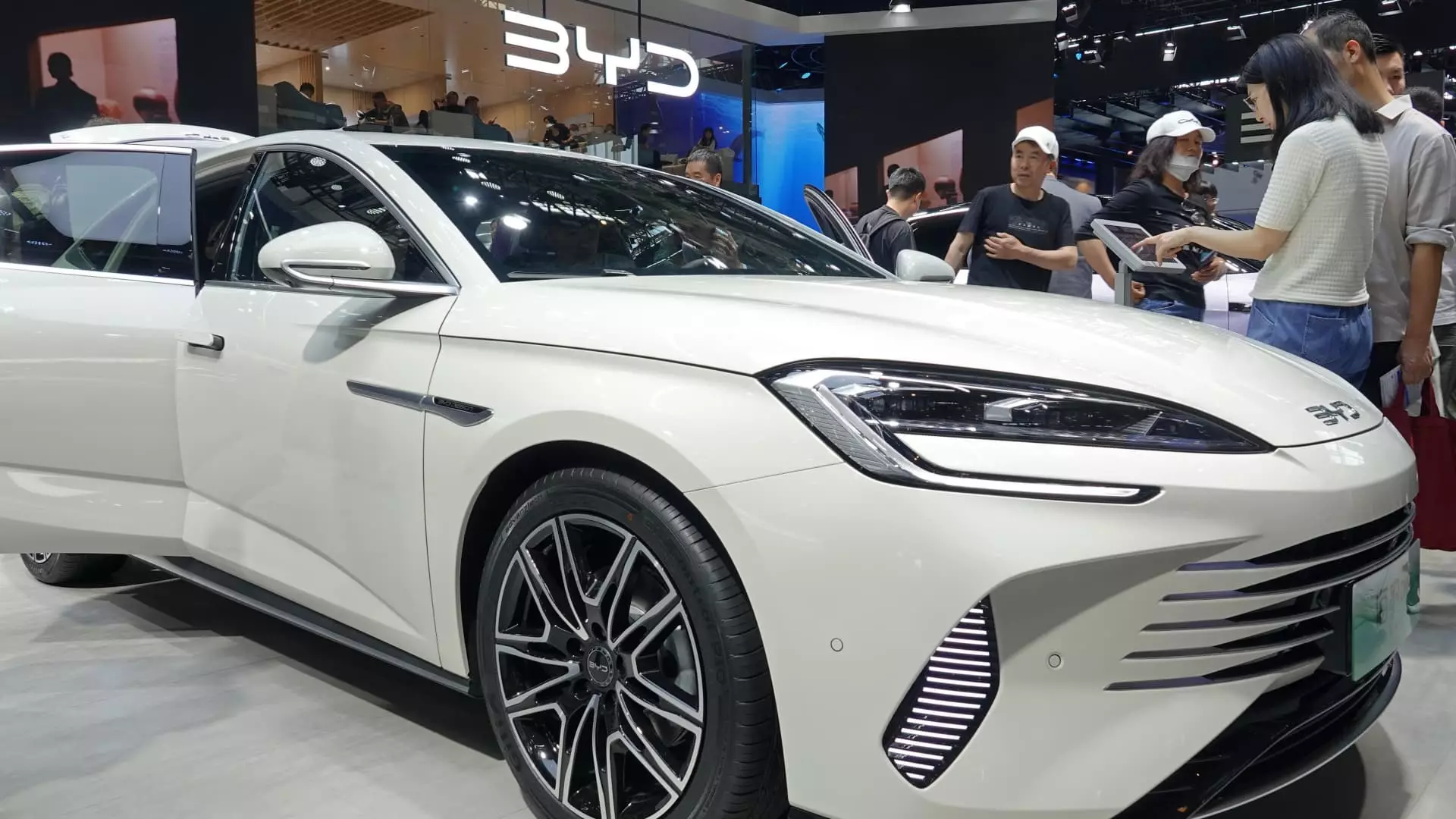The announcement of higher tariffs on Chinese electric vehicle (EV) makers by the European Union led to a surge in the stock prices of these companies. Hong Kong’s Hang Seng index rose by 1.23% at the opening, largely driven by the gains in EV stocks. For instance, EV company BYD, which was the top gainer on the HSI, saw its shares jump by 8% during morning trade. Similarly, Geely’s stocks were up by about 4%, while Nio and Li Auto experienced increases of 1.75% and 2.67% respectively. However, state-backed SAIC witnessed a decline of more than 2%.
The EU announced that it would impose additional tariffs on Chinese EV players with a significant presence in Europe. Specifically, BYD will face extra tariffs of 17.4%, Geely will be subjected to a 20% duty, and SAIC will have to pay additional duties of 38.1% – the highest among the three companies. These extra tariffs are in addition to the standard 10% duty already imposed on imported EVs. Other Chinese EV firms that cooperated in the investigation but were not sampled will face 21% in extra tariffs, while those that did not cooperate will be subject to 38.1% in additional duties.
Reason Behind EU Tariffs
The EU justified the imposition of these tariffs by claiming that Chinese EV makers benefited from unfair subsidization, which posed a threat of economic injury to the EU’s EV industry. The tariffs are seen as a moderate response compared to the high duties imposed by the U.S. on Chinese EV imports. The EU’s move follows a probe that was initiated in October, and the definitive measures will be implemented within four months of the provisional duties if no resolution is reached with Chinese authorities.
Chinese state-backed SAIC received the highest tariff rate of 38.1%, prompting speculation that the EU is pressuring the company to establish a production facility within Europe to avoid tariffs. Despite having a limited footprint in Europe, SAIC has yet to select a site for its first European production facility. On the other hand, both BYD and Geely have significant investments in Europe – with BYD committing to building a new EV plant in Hungary and Geely moving some production from China to Belgium.
The EU’s decision to impose higher tariffs on Chinese EV makers has had a notable impact on the stock prices of these companies. While some stocks surged following the announcement, state-backed SAIC faced a decline due to the highest tariff rate imposed on it. The EU’s rationale for the tariffs, coupled with the potential implications for Chinese automakers, underscores the evolving dynamics of the global EV industry and the competitive landscape in key markets like Europe.


Leave a Reply